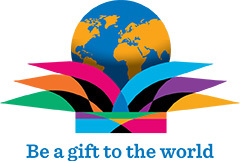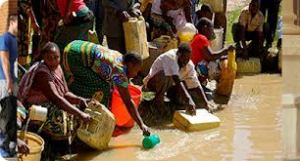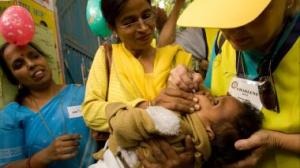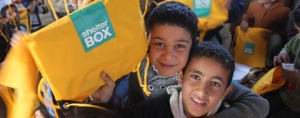 “Will we come to the end of our lives and realize that we have wasted our gifts, achieving nothing that will outlive us? Or will we look back and know that when we pass from this world, the good that we have done will remain?” — Ravi Ravindran, Rotary International President.
“Will we come to the end of our lives and realize that we have wasted our gifts, achieving nothing that will outlive us? Or will we look back and know that when we pass from this world, the good that we have done will remain?” — Ravi Ravindran, Rotary International President.
The theme for Rotary Clubs in 2015-16 is Be a Gift to the World — to give the gifts of time, talent, and knowledge to improve lives in communities across the globe. “Through Rotary, we can take these gifts and make a genuine difference in the lives of others and in our world,” Ravindran noted in a recent speech.
The Boone Sunrise Rotary Club wants to be a that gift through targeted projects designed to alleviate suffering. We are always looking for new projects, so feel free to contact us with your ideas. Projects include:
Tanzania Aqua Project (TAP)
 “TAP” was founded with the goal of establishing a water collection facility to improve the quality of life for the community of Bukota, Tanzania. Communities such as Bukota currently collect their water from mud holes where animals drink, leaving their only water source contaminated with feces and bacteria, causing disease. Children often must search for and carry water for miles, preventing them from attending school and obtaining the education they need to raise themselves out of the poverty and disease they are living in. The project establishes mechanisms for collecting and storing rain water, as well as distribution points at schools and churches in needy Tanzanian communities.
“TAP” was founded with the goal of establishing a water collection facility to improve the quality of life for the community of Bukota, Tanzania. Communities such as Bukota currently collect their water from mud holes where animals drink, leaving their only water source contaminated with feces and bacteria, causing disease. Children often must search for and carry water for miles, preventing them from attending school and obtaining the education they need to raise themselves out of the poverty and disease they are living in. The project establishes mechanisms for collecting and storing rain water, as well as distribution points at schools and churches in needy Tanzanian communities.
Polio Plus
During a speech to Rotary leaders in February 1985, then Rotary President Dr. Carlos Canseco announced what he considered “the biggest news in Rotary” — the commitment to help control polio worldwide.
 Since that day, Rotary’s dedication to the global eradication of polio has remained constant. 2015 marks the 30th anniversary of PolioPlus and three decades of progress and challenges the program has faced.
Since that day, Rotary’s dedication to the global eradication of polio has remained constant. 2015 marks the 30th anniversary of PolioPlus and three decades of progress and challenges the program has faced.
Though the PolioPlus program started in 1985, Rotary began the fight against polio much earlier. In 1979 Rotary members began a multiyear program that immunized more than 6 million children in the Philippines against polio (Rotary.org).
In its early years, PolioPlus was dedicated to fundraising for immunization efforts. In May 1988 Rotary announced that the campaign, which aimed to raise $120 million, had raised nearly $220 million in contributions and pledges. That same year, the World Health Assembly set a goal of worldwide polio eradication and launched the Global Polio Eradication Initiative (GPEI) with Rotary as one of its partners. At the time, polio paralyzed more than 1,000 children worldwide every day and 125 countries were polio-endemic.
The GPEI partners, which also included WHO, UNICEF, and the U.S. Centers for Disease Control and Prevention, were able to boost world immunization levels from less than 50 percent in 1985 to over 80 percent in 1992. Just five years after the GPEI was founded, the 500 millionth child was immunized against polio.
In 2007 Rotary entered into a partnership with the Bill & Melinda Gates Foundation, which issued Rotary a $100 million challenge grant to raise funds for polio eradication. This partnership continued to grow, and in 2013 the Gates Foundation offered to match Rotary’s contributions for polio eradication 2-to-1 for five years (up to $35 million per year).
PolioPlus is truly international. Rotary has 1.2 million members in nearly every country working together to end polio for good.
Since the launch of the GPEI, the global incidence of polio cases has decreased by 99 percent. In March 2014 India, once deemed the most difficult place to end polio, was declared polio-free, making the entire Southeast Region polio-free.
As of February 11, Africa had no new cases of wild poliovirus in six months, though the continent must mark three full years without a new case to be officially declared polio-free by WHO. Until polio is stopped in the remaining endemic areas, all countries must maintain high levels of surveillance and immunization rates to rapidly detect any importation of the poliovirus and minimize its impact. Now that 99 percent of the world’s population lives in regions certified polio-free, the goal of eradication is closer than ever.
Shelter Box
 Starting as the brainchild of one Rotarian with the support of his club in 2000, Shelter Box has grown to become one of the largest Rotary Club projects in the 100-year history of the organization. The Rotary International Shelter Box Program delivers humanitarian aid and relief on a worldwide basis in the form of material and equipment that provides shelter, warmth and comfort to people displaced by natural and other disasters. Each box contains a 10 person tent, 10 thermal blankets, a multi-fuel cooker and ancillary equipment such as water purification tablets, a torch and batteries, spade, rope etc. the basics a family would need after losing everything in a disaster. Victims of the horrific earthquake in Haiti have been among the most recent recipients of this life-changing program.
Starting as the brainchild of one Rotarian with the support of his club in 2000, Shelter Box has grown to become one of the largest Rotary Club projects in the 100-year history of the organization. The Rotary International Shelter Box Program delivers humanitarian aid and relief on a worldwide basis in the form of material and equipment that provides shelter, warmth and comfort to people displaced by natural and other disasters. Each box contains a 10 person tent, 10 thermal blankets, a multi-fuel cooker and ancillary equipment such as water purification tablets, a torch and batteries, spade, rope etc. the basics a family would need after losing everything in a disaster. Victims of the horrific earthquake in Haiti have been among the most recent recipients of this life-changing program.
